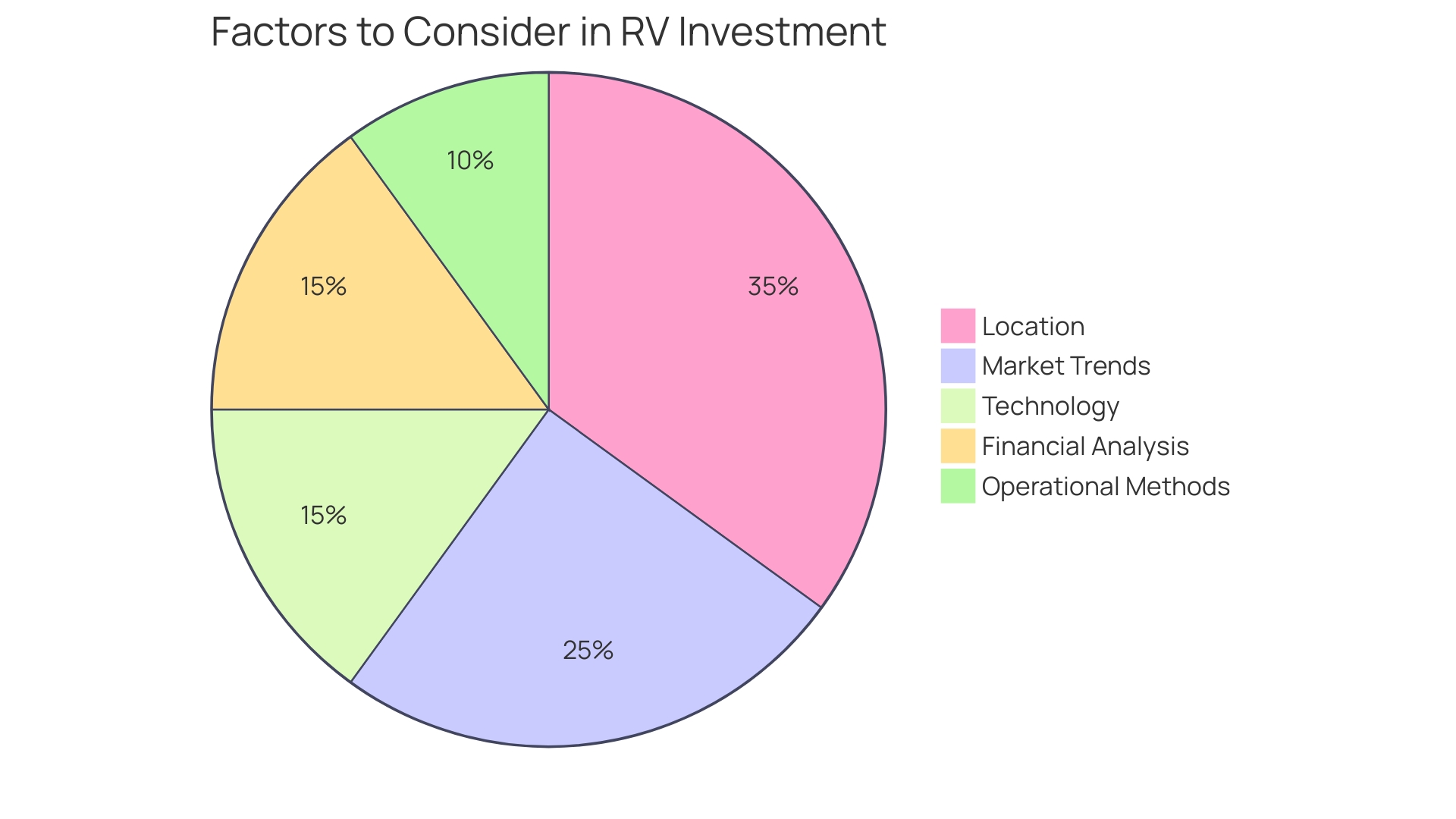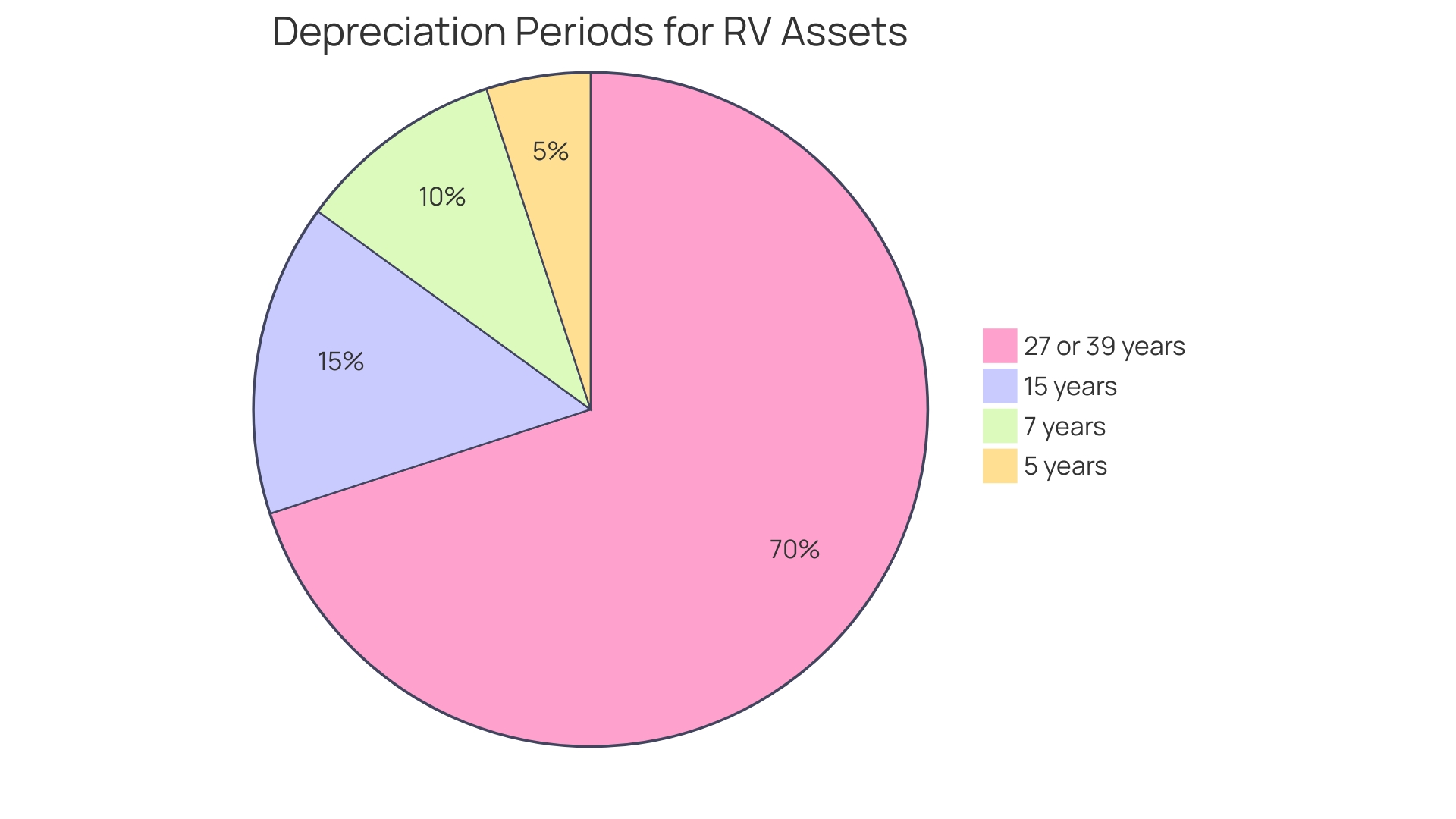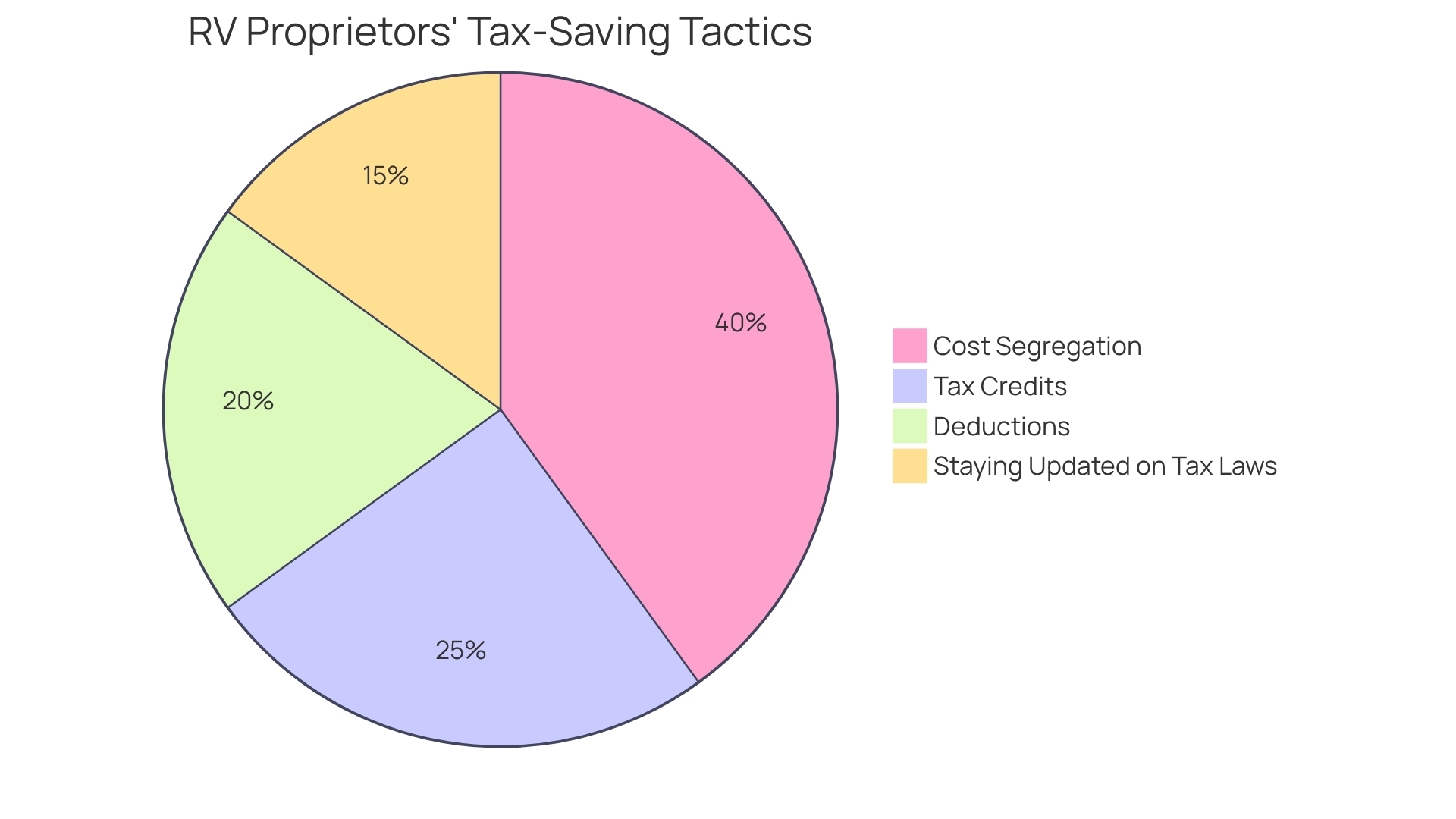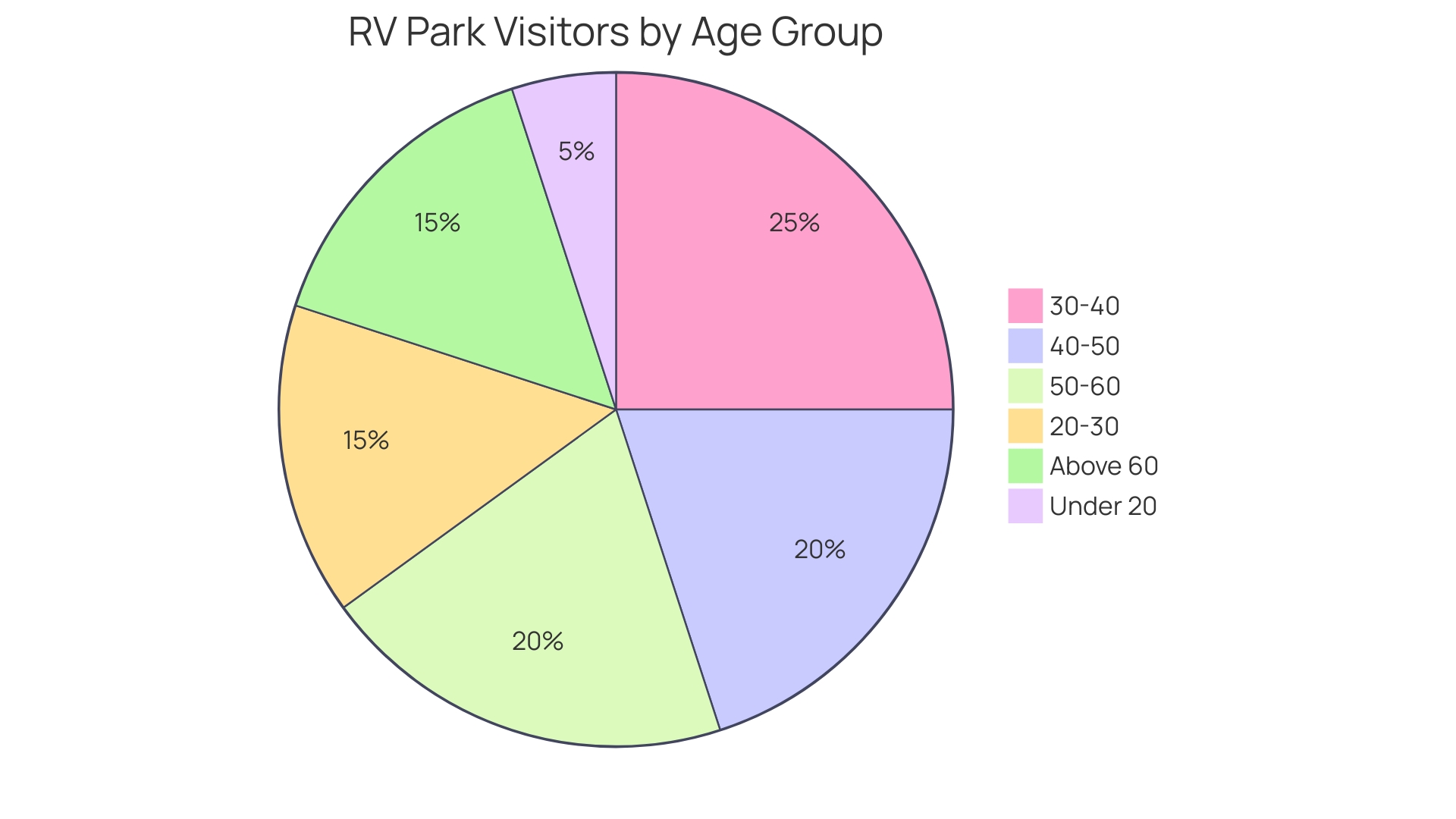Introduction
Venturing into the world of RV parks offers an adventure in the hospitality industry where the blend of nature and commerce creates opportunities for financial success to thrive. Delving into RV parks involves more than selecting a prime location or appealing amenities – it entails understanding the market trends and investment nuances that distinguish them as a unique investment class. When considering investing in RV parks and campgrounds for your business endeavor it's crucial to factor, in how technology and marketing strategies can elevate customer satisfaction and operational effectiveness.
Investment in RV parks presents similarities to estate from a financial standpoint but maintains its unique appeal as a hands off investment opportunity when leveraging automation and efficient management systems. Buying an RV park is more than a financial venture; it embodies a lifestyle choice that attracts many people. By considering factors such as financial agreements and operational strategies when investing in an RV park not only secures your position in the hospitality industry but also positions you for success, within it.
Understanding RV Park Investments
Venturing into the realm of recreational vehicle accommodations offers an exhilarating experience in the hospitality industry, where the combination of natural surroundings and commerce creates opportunities for profitable endeavors. This sphere combines the excitement of road travel with the comforts of traditional lodgings and prompts you to consider different crucial factors that can direct your investment journey towards success.
Comprehending RV spaces extends beyond selecting a favorable location or appealing characteristics - it's about understanding the market trends and investment complexities that differentiate them as a unique investment category. For example; with the growing popularity of pursuits leading to a surge in demand for RV storage facilities it's essential to think about offering extra services that could increase profits. Imagine delving into an area where providing storage solutions can be as profitable, as the hospitality side of things itself.
When exploring investment opportunities in RV parks and campgrounds for your business endeavor, it is crucial to take into account the impact of technology and marketing strategies on improving customer satisfaction and operational efficiency. Learn from the experiences of established venues such as Parkhotel Adler that encountered difficulties resulting from systems. In the RV sector embracing digital solutions to improve visitor interactions and optimize business processes can give you a competitive edge over other players, in the industry.
Furthermore, the monetary aspect of investing in recreational vehicle areas may exhibit similarities with real estate in certain ways, such as the requirement for detailed financial analysis for larger loans; however, it still retains the essence of being a low touch investment, especially when automation and effective management systems are utilized to remove the necessity for continuous onsite supervision.
Essentially, buying an RV property extends beyond a transaction - it signifies an investment in a lifestyle that attracts many individuals. By considering important factors ranging from agreements to operational methods you position yourself not only to have a stake, in the hospitality industry but also to thrive within it.

Benefits of Cost Segregation for RV Parks
Cost segregation can have an impact, for owners of RV areas by providing an intelligent way to manage tax obligations efficiently. This strategy allows for the reorganization of area assets to access depreciation deductions. The key to cost segregation is to identify and separate property components that can be depreciated over a shorter period. Usually 5、7、or 15 years instead of the usual 27.you or 39 years.
One example is the travel homes created by Barclays that can switch from being a vehicle to serving as a permanent living space efficiently The Barclays family may find value in conducting cost segregation studies to depreciate the non core components of their RV homes over a shorter period of time This approach could result in significant tax advantages, for them in the long run
With the RV sector experiencing a rise in popularity as shown by the reports from the RV Industry Association mentioning a decrease in the age of new RV purchasers to 32 and highlighting the significant role of RV travel in boosting outdoor recreation economy. It is evident that the financial success of recreational vehicle areas is now more crucial than ever before. Furthermore there are reinvestment prospects in this growing market due to the increasing number of RV owners which now stands at, over 11 million households.
An conducted cost segregation analysis can kickstart this process by allowing property owners to take advantage of immediate tax benefits. The regulations on Qualified Improvement Property along with the provisions for bonus depreciation further enhance this tax approach. For instance some property upgrades completed after December 31st 2017 can now be depreciated over a span of 15 years.Additionally based on the bonus depreciation rule it is possible to deduct, up to 100% of the cost in the year of purchase or start of service.
Traversing through this landscape requires the guidance of a Cost Segregation Specialist who brings invaluable expertise to the table They employ engineering driven methods to identify optimal tax benefits For owners of RV parks this entails adopting a proactive approach, to managing assets and actively pursuing the precision and knowledge that only an experienced expert can provide
Cost segregation goes beyond tax savings to drive business growth by using those savings to enhance services and broaden property portfolios strategically in line with the momentum in the RV industry and positive economic outlook, for growth oriented investors.

How Cost Segregation Works for RV Parks
Exploring the importance of cost segregation in the RV industry can result in tax advantages for owners. This particular procedure entails an examination of property assets to distinguish personal items from real estate. Personal assets typically undergo depreciation schedules which in turn lead to increased deduction, on depreciation and ultimately boost cash flow.
In addition to the thriving RV industry and its broadening ownership base noted by the RV Industry Association cost segregation emerges as a tactic. Owners have the option to reinvest these savings back into their ventures enhancing services or diversifying property choices. Moreover insights from Cloudbeds underscore the significance of properties in maintaining competitiveness with cost segregation serving as a tool, towards this goal.
As recreational vehicle facilities play an expanding role in the economy of owners in the recreation industry, they need to cautiously manage monetary strategies. A thorough examination of cost segregation offers a chance to achieve this goal— boost tax savings away and have the option to reinvest in a thriving industry.
Case Study: Cost Segregation for RV Parks
Robert and Julia Barclay brought their dream to life by blending the coziness of a home with the freedom of an RV to craft a one of a kind living adventure.They transitioned from an idea to embracing full time mobile living that reached its peak at the Florida RV Supershow when they displayed their approach as a customizable option for fellow explorers. This scenario underscores the significance of a Quality Cost Segregation Study by underscoring the tax benefits it offers alongside opportunities, for business reinvestment. This highlights the significance of making the most of the value of money by utilizing the strength of todays currency and using savings to support business expansion and property improvements effectively shown by Barclays’ approach exemplifies how thoughtful financial planning can improve the practicality and pleasure of owning an RV while aligning with wider industry developments as RV travel gains popularity among a younger and more diverse audience contributing significantly to the outdoor recreation sector transforming the RV lifestyle into not just a hobby but a chance, for investment as well. Barclays case study along, with industry knowledge highlights the opportunity for RV areas and campsites to succeed in this growing market.

Key Considerations for RV Park Owners
Comprehending the intricacies of owning an RV establishment is similar to embarking on an exhilarating journey with maps and tools to direct you along the path towards achievement and ensuring guests' satisfaction is also essential! One key factor to keep in mind is the zoning laws that dictate land use and can differ greatly depending on the area you're in; staying up to date on these rules is essential, for future growth and determining what facilities you can provide for visitors. When it comes to amenities nowadays travelers are looking for more, than a place to leave their RV. They want an experience they'll remember. Having facilities, fun activities and beautiful natural surroundings can transform a regular stay into a remarkable journey result in good feedback and boost revenue.
Keeping up with the trends in the industry is crucial as well. Due to the increasing popularity of activities and RV travel among a younger and more diverse demographic of enthusiasts, the RV accommodation area is undergoing a revival. According to the Bureau of Economic Analysis, RV travel ranks at the forefront of the outdoor recreation sector, indicating positive prospects for both existing and potential operators in the RV industry. Investors are drawn to RV investments because of the flexibility they provide in terms of automation and the ability to manage without an on-site manager—an opportunity for those seeking a profitable venture while juggling their busy professional lives.
Having a grasp of legal matters is essential for effectively managing an RV business. RV management involves dealing with aspects of tourism law such as maritime regulations and local property laws. Having an understanding of these legal nuances is crucial in order to steer clear of potential legal issues and their consequences. Collaborating with a legal team can help you navigate through these complex legal waters and protect your investment. As you venture into the world of owning an RV business it's important to keep in mind that the journey itself matters as much, as reaching the final destination. By organizing your approach with a focus on current industry movements and a dedication to delivering an exceptional stay, for visitors; your RV campground has the potential to prosper in this growing field.
Maximizing Tax Savings with Cost Segregation
Aside from cost segregation techniques employed by RV proprietors to optimize their gains and benefits, there are various other tax-saving tactics available to them. The increasing popularity of recreational activities has made the RV and boat storage industry a lucrative niche for investors looking for significant income streams with minimal hands on involvement. A perfect fit, for individuals valuing their time dearly. The automated operation of storage facilities and the possibility of not requiring on site management add to its attractiveness, as a low maintenance investment choice.
Investing in properties not only ensures a steady income but also brings tax benefits into play as well. Certain assets such as RV and boat storage spaces might be eligible for tax credits or deductions that can reduce taxable earnings. Staying updated on the evolving tax laws including the IRS standard mileage rate is essential to fully capitalize on these advantages. Seeking guidance from a tax consultant is key to staying compliant, with the rules and making choices that match ones financial objectives.
The rise in RV popularity has led to a decrease in the age of new RV purchasers to 32 years old and has diversified the customer base while also strengthening the industry economic impact significantly. These demographic shifts underscore the need, for staying updated on tax breaks and incentives that could impact outcomes. In essence by incorporating tax approaches owners of recreational vehicle parks have the opportunity to create a thorough tax strategy that takes advantage of all available benefits.

Common Mistakes to Avoid in RV Park Investments
Exploring the world of investing in RV parks demands an attention to detail and a thoughtful strategy to steer clear of typical pitfalls. Each investment opportunity presents its unique characteristics. Take Real Estate Investment Trust (REIT) for example. Showing diverse trends in sectors such as healthcare facilities or lodging establishments. It's crucial to conduct an assessment of factors like reliable tenant rent payments and sustainable debt levels as part of your due diligence process. Akin to analyzing various economic indicators to anticipate shifts, in the financial markets.
Economic indicators are like a roadmap. When looking into buying an RV area this information is extremely valuable as interest rate changes directly influence growth by either encouraging or discouraging borrowing.
In addition to that point about how past experiences can influence choices. Think of the dot com bubble era as a case in point; just because something was labeled as 'dotcom' it didn't mean it would be a surefire hit in terms of investments. Equally important is the concept of obtaining approval from multiple lenders before delving into acquiring recreational vehicle resorts. This proactive move helps you understand your monetary capacity and lets you know your monthly responsibilities without any negative effects, on your credit rating.
By combining knowledge of trends with smart financial strategies in mindfully managing investments in the recreational vehicle industry while avoiding common traps that can catch the inexperienced investor off guard and paving the way for successful business endeavors.
Strategic Planning for RV Park Success
Embarking on your adventure into owning an RV establishment necessitates careful planning and a solid strategy to navigate the exciting journey ahead of you as the outdoor and RV lifestyle gains popularity among a broader range of individuals in diverse age groups and backgrounds. It is vital to have an understanding of your target market and create an engaging brand experience to stand out in the bustling industry. Having a strategic approach that adapts to market trends can give you a competitive advantage in this ever-changing industry. One key aspect is making the most of your RV parks location to draw in visitors and create a compelling experience, for them. Crafting a strategy that incorporates market research insights with branding efforts and adaptability in operations can mirror the effective tactics employed by Robert and Julia Barclay in promoting their RV travel homes successfully; this approach could pave the way, for glowing reviews and heightened sales figures. The steadfastness exhibited by the RV sector in facing adversities highlights the significance of adopting a customized game plan that caters to the changing tastes of a growing clientele base. By organizing your RV site and amenities, in advance you could attract the 84 million Americans who enjoyed camping last year including the 6 million newcomers.

Conclusion
Investment in RV parks presents a chance for achieving financial prosperity within the hospitality sector by taking into account market shifts and utilizing technology efficiently while also focusing efforts towards strategic planning to enhance customer satisfaction and operational effectiveness.Cost segregation serves as an approach to managing tax obligations and channelizing saved funds back, into the business for future growth and development opportunities.
Running an RV park involves keeping track of zoning regulations and ensuring top notch facilities for guests to enjoy their stay to the extent possible while also maximizing tax advantages through various means beyond just cost separation that apply specifically to areas like RV or boat storage spaces; steering clear of typical errors and devis ing a well considered plan are crucial elements for achieving success, in investments related to RV parks.
Effective planning is crucial in the hospitality industry to draw in guests and provide an experience by grasping the needs of the target market and adjusting to market shifts is key for success in attracting visitors and enhancing their stay at RV parks can lead to profitable outcomes By staying attuned, to market changes using technology wisely and strategizing thoughtfully you can enhance customer happiness levels and streamline operational processes
Owning an RV park can offer a lifestyle and a successful business opportunity when approached with the right knowledge and mindset.




